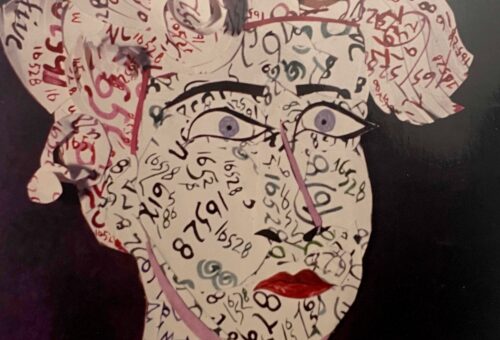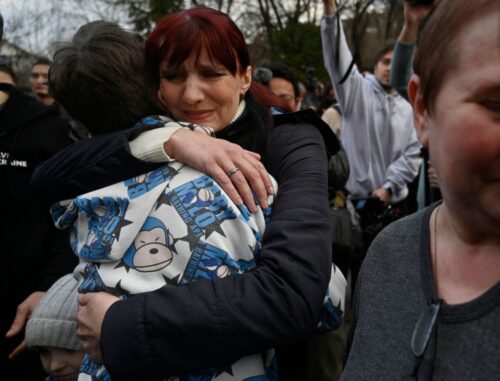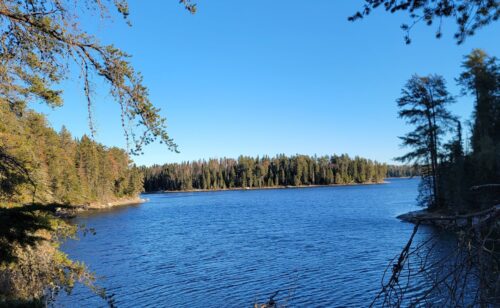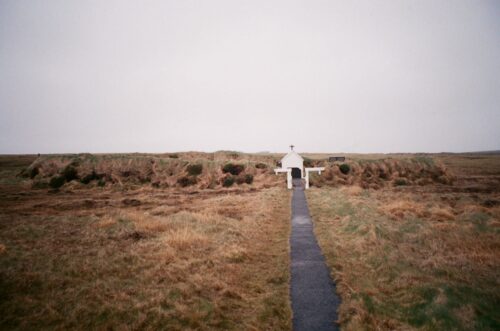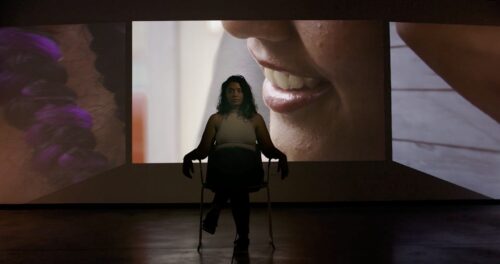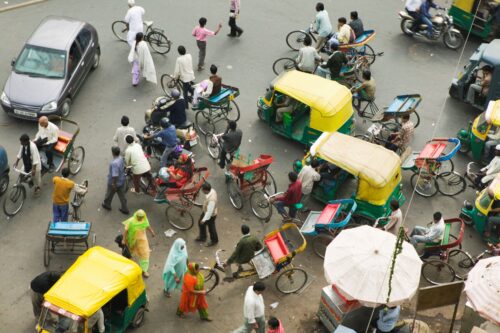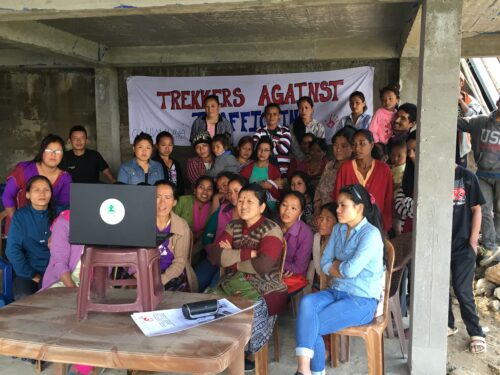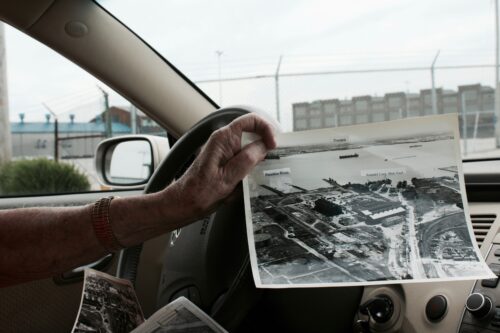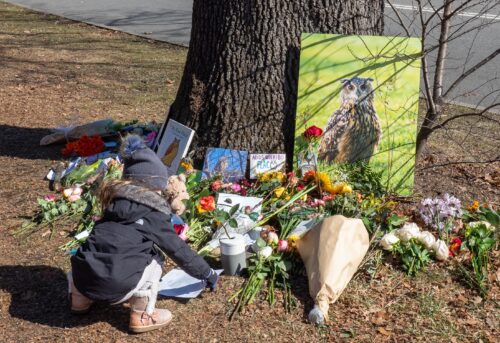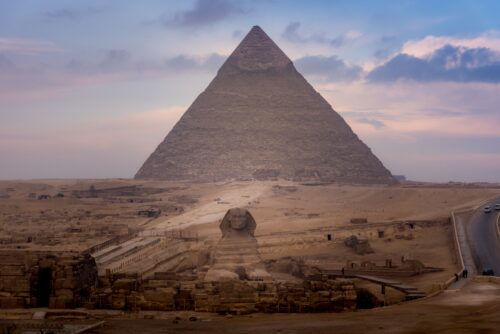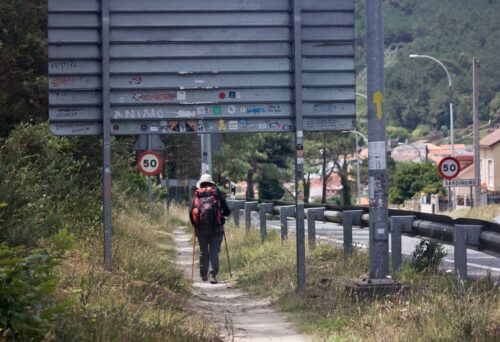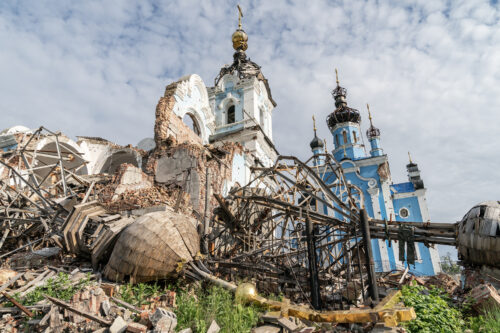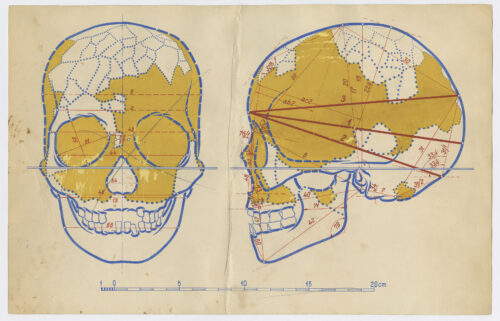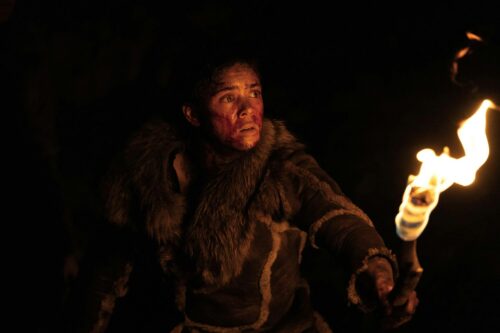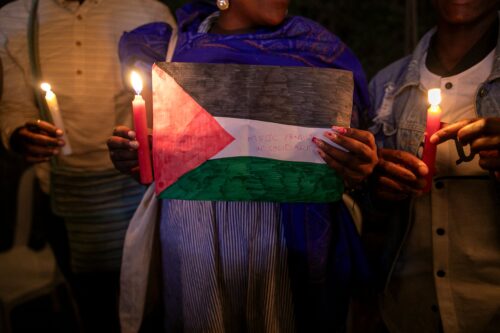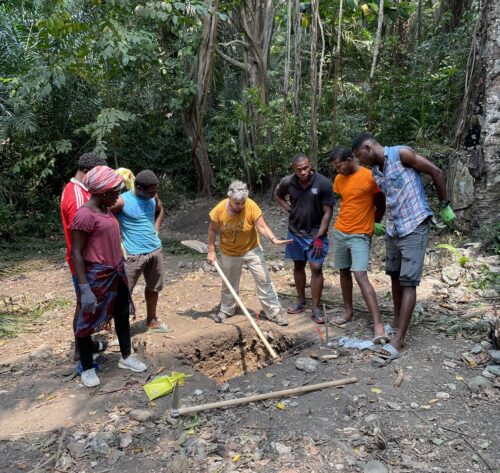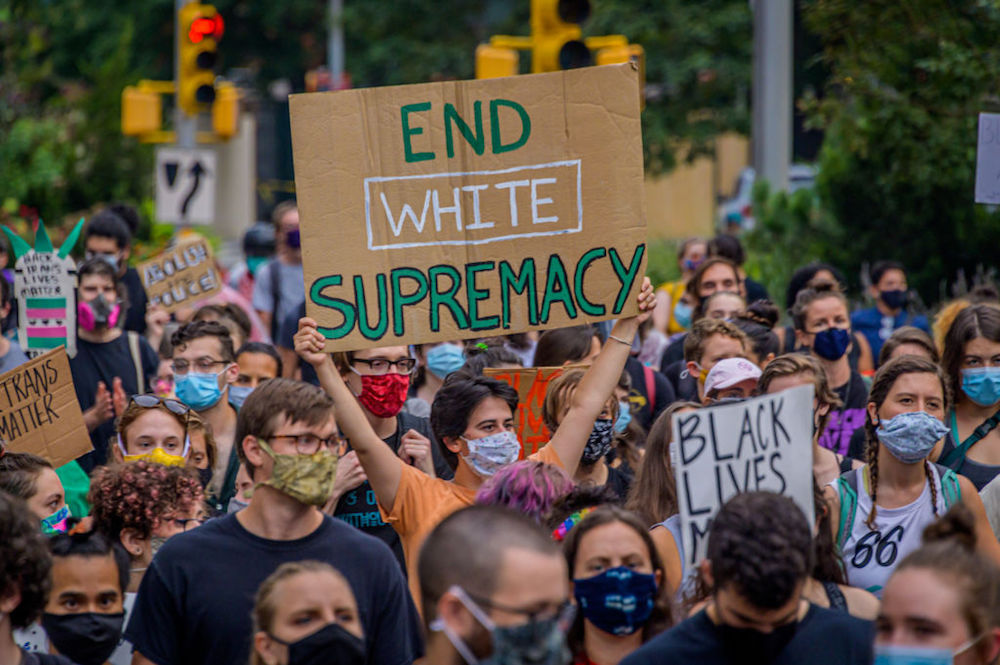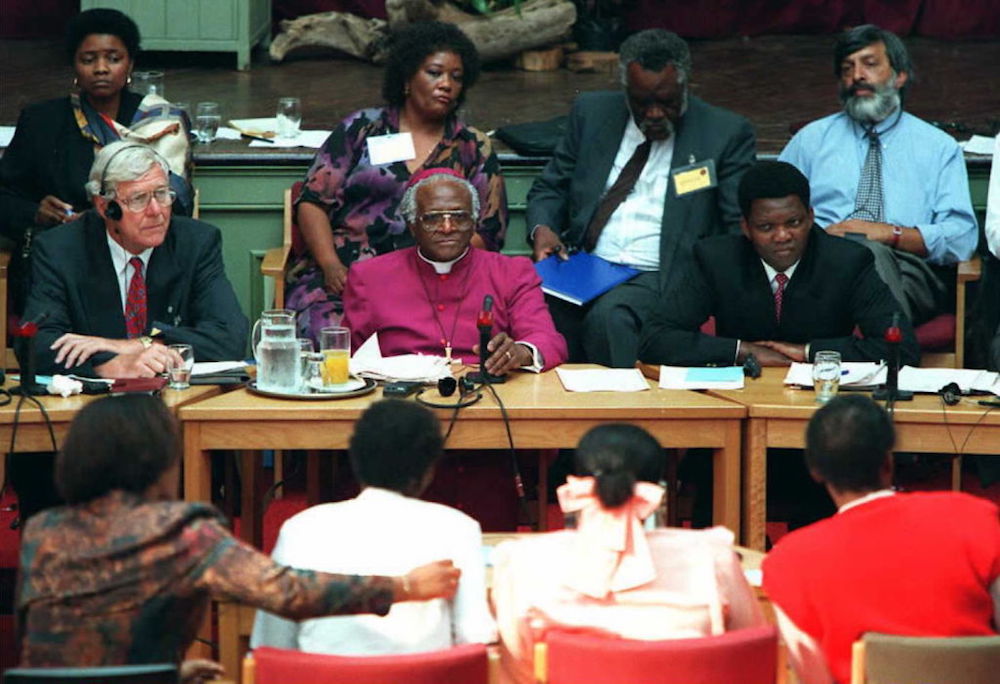What Will It Take to Stop Swimming in the Waters of Racism?
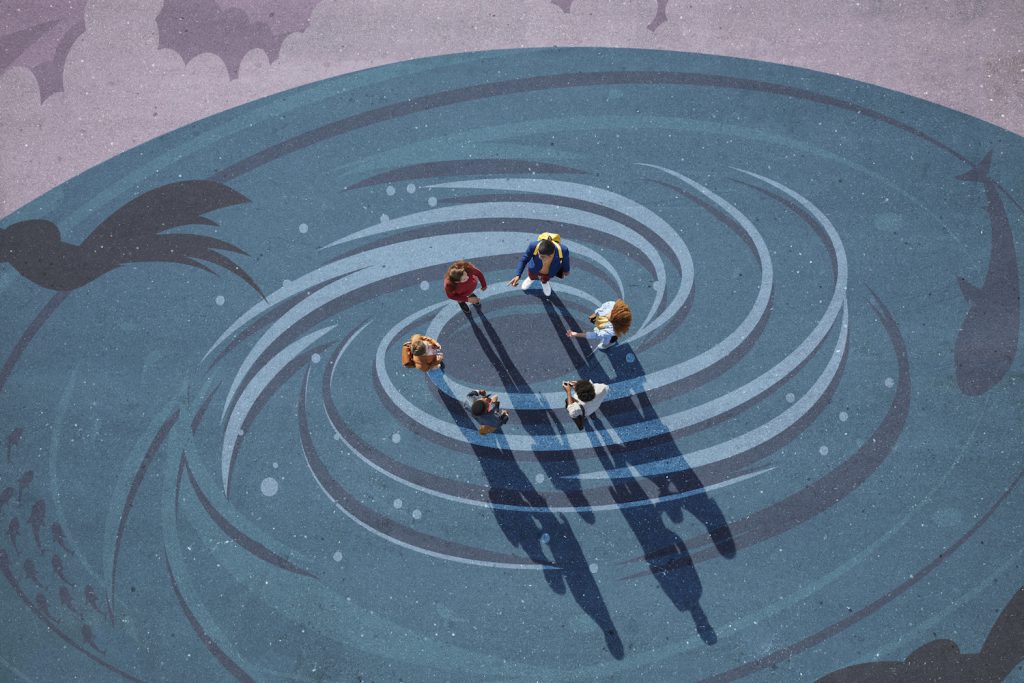
In the weeks leading up to the one-year anniversary of the murder of George Floyd, I passed dozens of Donald Trump 2024 banners and thin blue line flags in support of police while traveling through rural Colorado and eastern Utah. A rare Black Lives Matter poster hung in a few windows.
The human rights issues that sparked uprisings in response to the murder of Floyd, an African American man, by White police officer Derek Chauvin, seemed a distant memory in this part of the country.
With White populations of 68 percent and 78 percent, respectively, these western states were largely out of the limelight of Black Lives Matter activism—with some notable exceptions. Yet they harbor the threat of white supremacist activity, which increased during the Trump era. The Southern Poverty Law Center tracked 17 hate groups in Colorado and four in Utah during 2020.
For all the progress we have made, racism remains a public health emergency in the U.S. To take just the example of disparities in law enforcement, Black people are still killed by police officers at more than twice the rate of White Americans. Sociologist Rashawn Ray has estimated that one Black person is killed about every 40 hours by police. Native Americans are killed at a rate three times that of White people, and Latinx people are killed at 1.3 times the rate.
While these statistics have been published repeatedly, many White Americans evidently remain unaware of these disparities—or are unfazed by them over time. About one in five White people in the U.S. “seldom or never interact with someone who does not share their race or ethnicity,” a recent poll indicated. White people in the U.S. continue to live in mostly White neighborhoods. Forty-nine percent of White people believe that our country has already done enough to grant equal rights to African Americans.
How can most White Americans even gauge what’s happening in BIPOC communities if they remain so solidly ensconced in White social circles and largely uninformed by our educational system about the histories that have shaped their identities as White people with race-based privileges?
A legacy of state-terror shapes everyone who lives in the U.S. For instance, the National Law Enforcement Museum explains that though policing differs today, “the profession developed from practices implemented in the colonies.” Slave patrols starting in the 18th century were meant to terrorize enslaved Black people to prevent them from escaping or revolting. The inception of this system protected White wealth and interests, also pitting a White wealthy class against White workers.
This centuries-old racial hierarchy stays in play through laws, rituals, language, power structures, and more—all of which still implicitly value and protect White people more than those deemed “non-White.” Even if White people as individuals feel they don’t believe in that hierarchy, we all swim in the waters of racism.
On this anniversary of George Floyd’s killing by police, we in the U.S. need to take a hard look in the mirror again and confront the insidious threats that domestic terrorism and white supremacy continue to pose to the social fabric of our nation.
Perspectives from South Africa can serve as a touchstone for us. For my master’s thesis in anthropology at Colorado State University, I interviewed 36 South African immigrants to the U.S. in 2003 and 2004, most of whom were White and from two different ethnic groups (Afrikaans-speakers and English-speakers), to better understand their experiences of apartheid and post-apartheid society.
In South Africa, the National Party installed one of the most deeply racist systems ever to have existed. Apartheid ran from 1948 until 1994. In 1995, a Truth and Reconciliation Commission was created to help reveal the human rights abuses and violence of the apartheid era as the country sought to establish a New South Africa.
For some of my interviewees, televised hearings from the commission were the first window into the horrors of apartheid they had been shielded from due to intense segregation. Even when some had witnessed violence, the lens they viewed the world through often didn’t allow for a critique of what was directly in front of them. People outside South Africa knew much more about what was happening than some good number of White people within the country who had been brainwashed to believe the propaganda that justified mass human rights violations by the racist state.
Only in apartheid’s funerary wake could they begin to see.
Ubuntu, a concept South African informants shared with me during my research and one that an African American Anglican priest (ordained by South Africa’s Anglican bishop Desmond Tutu) views as a gift from Africa to the West, offers a way of looking at the world that many in the U.S. could learn from. A rough translation is “I am because of you.”
The word originates from the phrase Umuntu ngumuntu ngabantu, which means: “A person is a person through other persons.” As a phrase only first noted in written records in the mid-1800s among Nguni-speaking peoples, it’s much older and has had different meanings through time and space. But one contemporary translation from Archbishop Tutu explains: “My humanity is inextricably bound up in yours.”
Tutu and other leaders promoted the idea as a call, a charge for South Africa as a way to heal the damage of apartheid—of separation.
This worldview revolves around the idea that a person cannot even consider themselves a whole human being without participating in the social fabric surrounding them. Identity is based in community, not individualism: We do not live or act in isolation.
How might that apply to the U.S.?
One first step we can take is overcoming the ongoing effects of segregation by deeply integrating our social lives, our neighborhoods and cities, and our work worlds.
We also need strong interventions in education to overcome ignorance about racism’s past and present. For some of my interviewees, the significance of ubuntu didn’t come to light until the proceedings of the Truth and Reconciliation Commission. Today some anthropologists are calling for something similar: A Truth Commission on White Supremacy and Its Legacies here in the U.S. We need to support these calls for transitional justice.
Archbishop Desmond Tutu defines ubuntu as: “My humanity is inextricably bound up in yours.”
Our country became a superpower through the extreme exploitation of, violence against, and displacement of Native Americans and Black people, among other groups, from the start of European colonialism in 1492 until today. But many White Americans learn very little about the histories of and contemporary expressions and experiences of others who are non-White. Only well into adulthood, for instance, and after completing my formal education did I learn about the Tulsa Race Massacre, the aerial bombing of MOVE, the untold massacres and environmental genocide of Native Americans, and the Japanese American incarceration camps of WWII, among other examples.
In addition to beginning the road to repairing past injustices, a transitional justice commission with an educational component would benefit everyone by clearly and publicly detailing racism’s past and by giving a known shape to the history of white supremacist terrorism and its workings today.
In collectively and explicitly understanding this legacy and its ongoing effects, we would have a new opportunity to uproot and disentangle ourselves from a violent and oppressive system that damages everyone. Only by first recognizing how we are all harmed by white supremacy can we begin the work of becoming whole human beings in relationship to one another.
The persistence of the “race problem” largely lies in the hands of White Americans. Of course, anyone can reproduce social systems of injustice, but racism originated with Europeans and European Americans starting with early pseudoscientific ideas of a racial hierarchy in the 17th century. White people placed themselves at the top to rationalize imperialism, genocide, colonialism, and slavery.
From a foundation of clearly recognizing how they have benefited from this history and their place in the current racial hierarchy, White Americans can see others and say, “I am because of you.” That can be a first step in moving toward the urgent work of addressing systemic racism.
And from a philosophy that centers community, everyone in the U.S. can feel the weight and freedom of this future investment in one another’s well-being.
Only by transitioning into a shared life together—one based on ubuntu—of safety, trust, equity, and unity can the U.S. begin to recognize the toxic waters we’ve been swimming in and give rebirth to the springs that feed our communal streams.
